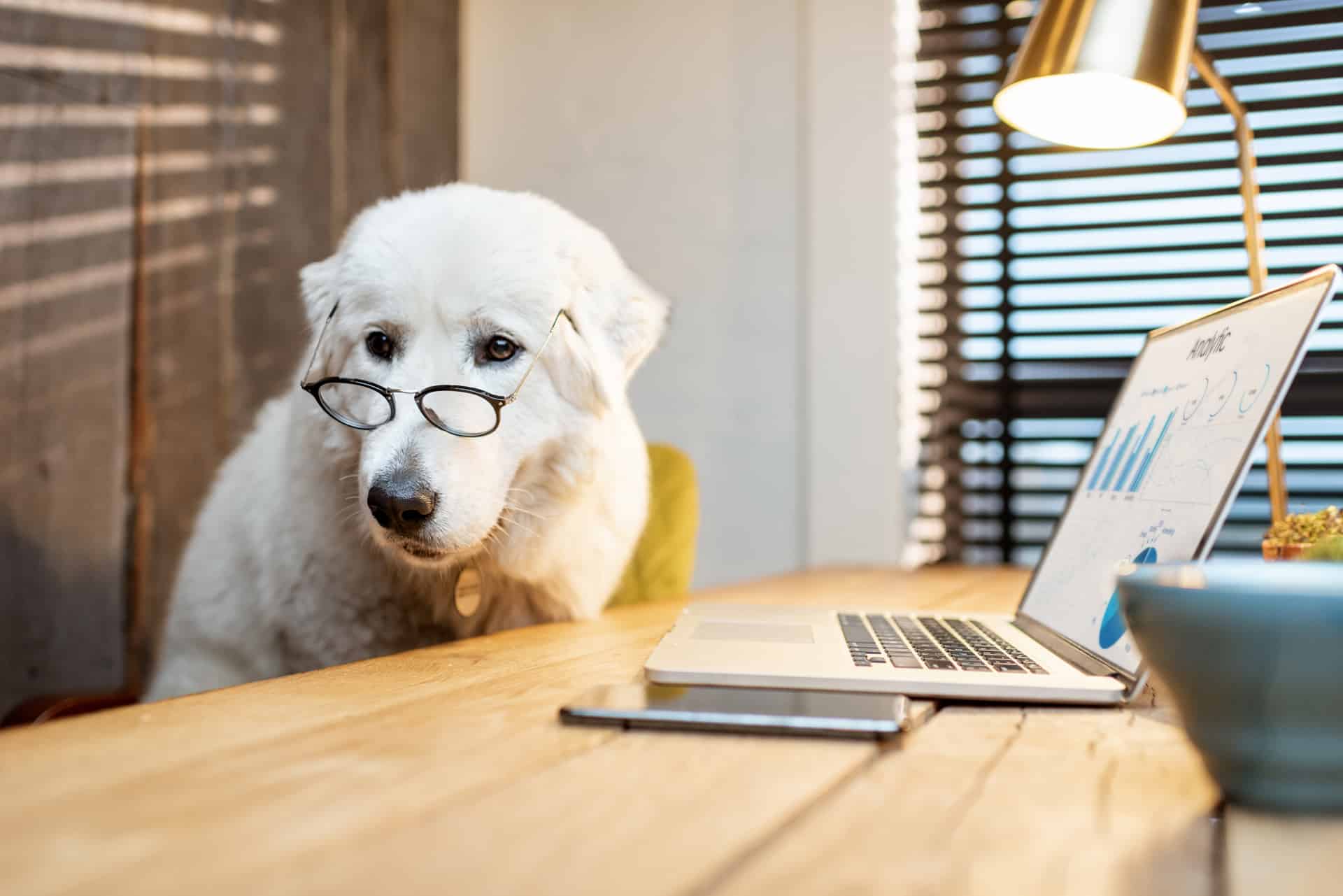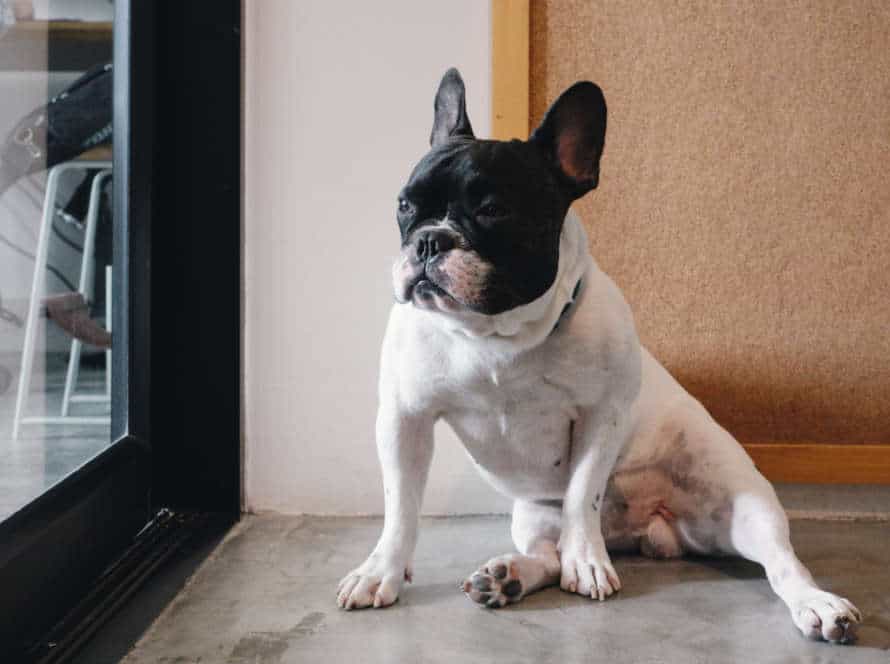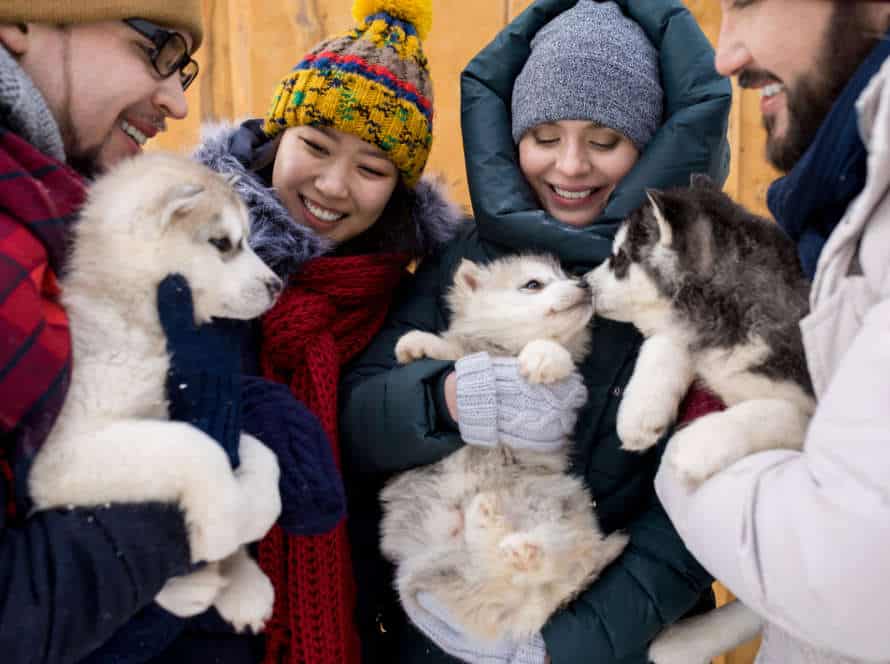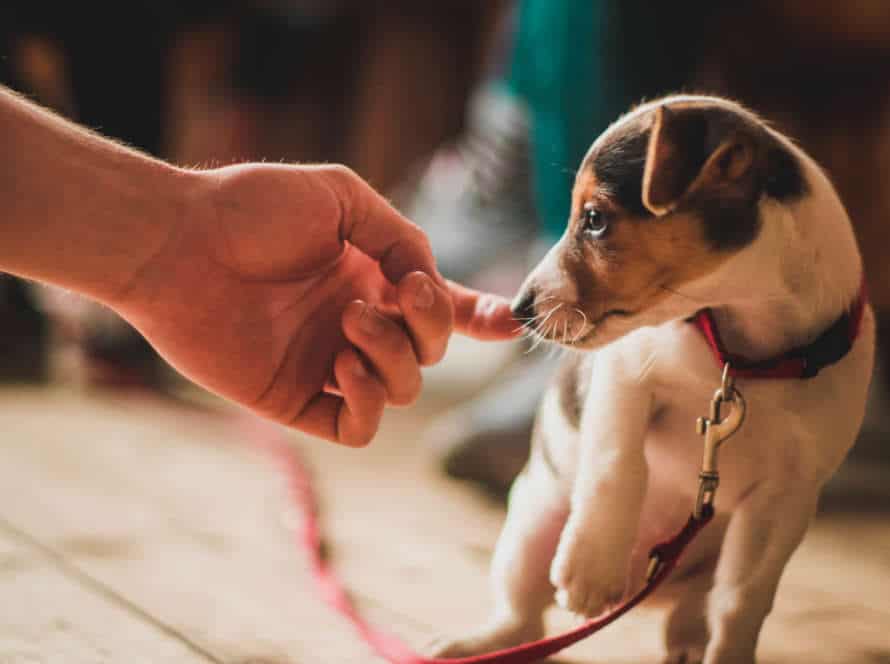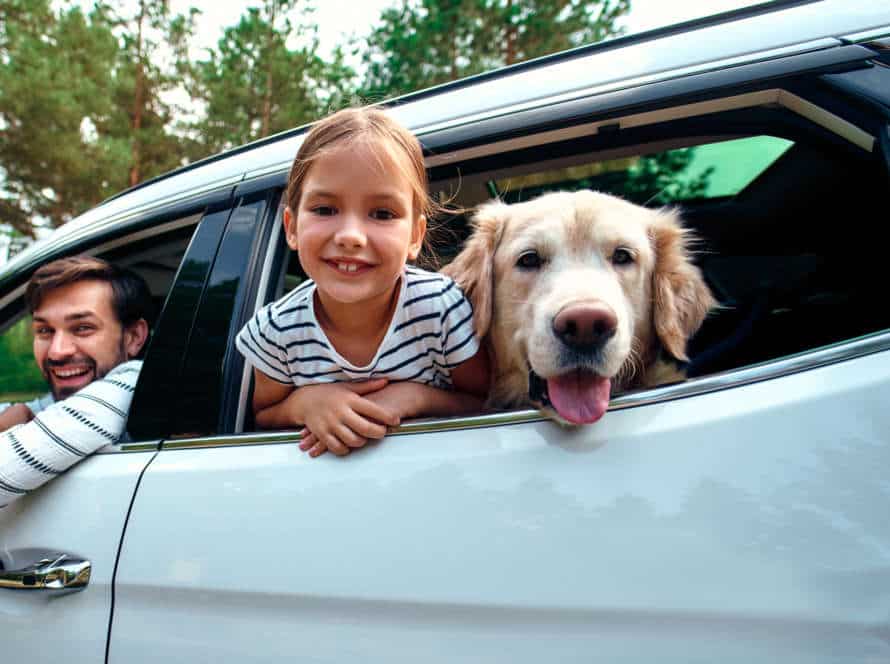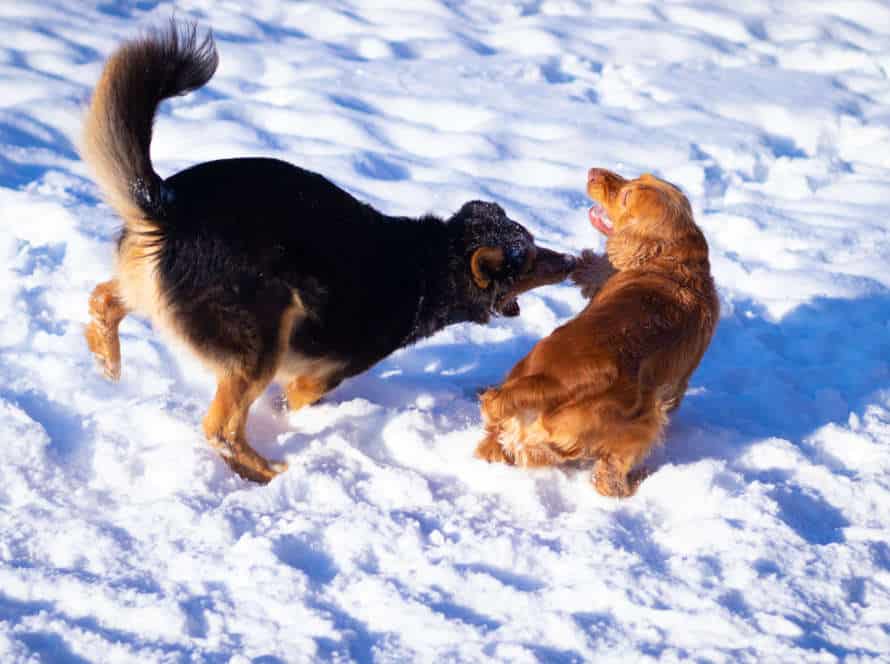Top 7 Socialization Mistakes to Avoid
Socializing your pup is essential for their growth and development. You may be tempted to show them everything at once but there are mistakes owners usually make. Here are the top 7 socialization mistakes you should avoid:
- Not starting to socialize your dog soon enough.
- Going straight into activities without introducing them first.
- Exposing them to too much new stuff all at once.
- Not watching your pup while they are socializing.
- Not paying attention to their body language and behavior.
- Expecting too much too quickly.
- Punishing them for any mistakes.
By avoiding these, you can make sure socializing your pup is a positive and successful experience!
Lack of Socialization
Making mistakes in socialization is common. Not investing time into building relationships can result in missed chances for development and knowledge. Here are the top 7 socialization errors that lead to a lack of socialization and how to dodge them:
What is socialization?
Socialization is the process of learning and adapting to social norms, practices, and values. It is important for a person’s emotional, cognitive, and behavioral development. Without it, connecting and communicating with others can be hard and cause problems. Here are 7 socialization mistakes to avoid:
- Don’t Isolate Your Pet: Not exposing them to different people, animals, and environments can cause fear, anxiety, and aggression.
- Don’t Overwhelm: Too much contact with people or pets all at once can be stressful.
- Do Obedience Training: This is essential for teaching your pet proper behavior in different situations.
- Pay Attention to Warning Signs: Ignoring fear, anxiety, or aggression can be bad.
- Don’t Punish Fearful Behaviors: Punishing them for showing fear or anxiety can make the problem worse.
- Train Consistently: Inconsistent training can confuse your pet and make it harder to learn and adapt.
- Meet Their Needs: Don’t neglect their physical and emotional needs, like exercise, play, and attention.
Pro Tip: Socialization takes patience, consistency, and positivity. Take small steps, reward good behavior, and get help if needed. This will help your pet be socialized and happy.
Why is socialization important?
Socialization is a must for people, no matter what age. It’s important in shaping social behavior, communication, and emotional health. It also helps build relationships and give a sense of belonging. Issues can come up if socialization is lacking. These can be like bad communication, social anxiety, and mistrust.
To avoid such problems, there are certain mistakes to avoid. These are:
- Shielding kids or pets from socialization chances
- Disregarding a child or pet’s fear
- Not having patience
- Pushing socialization
- Selecting the wrong social environment
- Leaving them inside all day
- Not showing love regularly
On the other hand, proper socialization can help with self-confidence, reduce stress and anxiety, and better overall mental health and well-being.
The dangers of not socializing your pet
Not socializing your pet can cause behavioral issues, stress and anxiety. Here are the top 7 socialization mistakes to avoid:
- Lack of exposure to people and animals can lead to discomfort and fear around strangers.
- Isolating your pet in one environment can make it hard to adjust to new places.
- Overstimulating them can cause exhaustion and irritability; monitor their behavior and let them rest.
- Forcing them to socialize can cause trauma and a lasting fear of social interaction.
- Don’t assume your pet will naturally socialize; they need active socialization to develop strong skills.
- Failing to teach proper social etiquette can lead to bad behavior and aggression.
- Over-protecting can stop them from learning and adapting to new things.
Socializing is key for your pet’s development and happiness. Avoid these mistakes to give them a happy life.
Inadequate Socialization
Many pet owners make a common blunder – inadequate socialization of their pup. Socializing your pup is an essential step and can help to create a balanced pet. However, there can be errors during the socialization process; let’s look at the top 7 mistakes to dodge.
What is inadequate socialization?
Inadequate socialization is the lack of proper exposure to social situations. This can lead to behavioral issues and anxiety in animals. Dogs, cats, and hamsters all need socialization to be well-adjusted and confident.
To prevent these issues, here are the top 7 socialization mistakes to avoid:
- Not socializing at all.
- Waiting too long.
- Forcing interaction.
- Moving too fast.
- Not rewarding good behavior.
- Not exposing your pet to different situations.
- Allowing your pet to become overwhelmed or anxious.
Socialization will not only stop behavior problems, but it will also strengthen the bond between you and your pet. It takes patience and time. If you’re struggling, seek help from a professional animal behaviorist.
Why is inadequate socialization a problem?
Inadequate socialization can cause many behavioural issues in dogs, such as fear, anxiety, aggression and destruction. Here are the top 7 socialization mistakes to avoid:
- Not starting socialization too late.
- Failing to socialize your pup with people, animals and different settings.
- Using punishment or negative reinforcement during socialization.
- Over-protection or under-protection of puppies during socialization.
- Exposing your pup to overwhelming or traumatic experiences.
- Forcing your pup to interact with people or animals they are scared of or uncomfortable around.
- Inconsistency and insufficient commitment to ongoing socialization practices.
Proper socialization is essential for a balanced and well-mannered dog. Pro tip- Regular socialization and being exposed to different environments will help your pup gain confidence and make positive connections with new experiences.
The impacts of inadequate socialization on behavior
Socializing wrong can affect animals and people negatively. To help your pet or child reach their potential, steer clear of these 7 mistakes:
- Don’t wait too long for socializing.
- Make sure to expose them to different environments and people.
- Don’t push them outside their comfort zone.
- Be consistent when socializing.
- Don’t punish them if they make a mistake.
- Provide plenty of socialization opportunities.
- Monitor their socialization experiences.
Socializing right can improve behavior, promote healthy development, and make relationships positive.
Too Much Socialization Too Soon
It’s important to socialize, but too much too soon can be bad. It can mean being too reliant on others for approval, or getting too involved with someone who isn’t as invested.
Here are the 7 worst errors when it comes to socializing. Know them, and avoid them!
What is too much socialization too soon?
Socializing pups is essential, but too much too soon can be too much. Here are top 7 socialization mistakes to avoid:
- Not limiting the number of people or dogs at once.
- No boundaries or rules set for pup.
- Ignoring signs of distress.
- Quickly exposing pup to new and strange environments.
- Holding them for long or restraining during socialization.
- Using socialization instead of obedience training.
- Relying only on dog parks.
Organize playdates with safe, friendly dogs in a controlled environment.
Every puppy is different, so socialization should be tailored to their breed, age, and personality. Gradual and positive socialization is key.
Why is too much socialization too soon a problem?
Too much socialization too soon can be a problem. It can cause anxiety, fear, and aggression. Here are the top 7 socialization mistakes to avoid:
- Stereotyping Dogs. Thinking they all socialize the same way.
- Rushing Socialization. Pushing your dog too quickly.
- Being Overprotective. Making them too dependent.
- Allowing Inappropriate Behavior. Letting them jump, bark, and play too aggressively.
- Isolating Your Dog. Keeping them away from others.
- Neglecting Context. Not considering the environment.
- Using Punishment. This can lead to fear and aggression.
To avoid these mistakes, socialize your dog gradually. Expose them to different situations and contexts. Reward good behavior. Also, consult a professional dog trainer.
The effects of too much socialization too soon on behavior
Socialization is important for your dog’s development and personality. But too much too soon could be bad. Here are 7 socialization mistakes to avoid:
- Don’t overwhelm your dog.
- Don’t introduce them to too many dogs at once.
- Watch their body language.
- Control their environment.
- Get obedience training.
- Don’t let them play roughly.
- Don’t rush the process.
It’s vital to make sure socialization of your pup is balanced and appropriate. Regular playtime, introducing them to different people, places, and situations, and watching their behaviour can help you avoid these blunders and bring up a socially adapted dog.
Forcing Socialization
You? Are you one of those persons who force socialization on others? Sounds good, but it could be more damaging than helpful. Forcing socialization is an issue. Here are the top 7 mistakes to dodge when it comes to socializing. Knowing and avoiding these common blunders can guarantee that your interactions with others are positive and meaningful.
What is forcing socialization?
Forcing socialization in pets means trying to make them socialize before they’re ready. This is a common mistake pet owners may make when they adopt or bring home a new pet. Here’s what to avoid:
- Making your pet interact with new people or animals before they feel comfortable.
- Giving your pet too much new stimuli all at once.
- Using punishment or negative reinforcement to force socialization.
- Not paying attention to your pet’s body language and cues.
- Not allowing your pet to set the pace and decide when it’s ready to socialize.
- Pushing your pet too hard or too fast.
- Not providing proper training and guidance during the socialization process.
Always keep in mind that socialization has to be a gradual and positive experience for your pet. Listen and respect your pet’s comfort levels to have healthy and long-lasting behavior.
Why is forcing socialization harmful?
Forcing socialization on kids and pets can have damaging long-term effects on them. Here are the top 7 socialization mistakes to dodge:
- Pushing socialization too quick, disregarding the individual’s comfort.
- Over-socializing, causing anxiousness and stress.
- Not giving downtime between sessions.
- Not teaching social skills before exposing them to new situations.
- Ignoring the individual’s boundaries and making them interact against their will.
- Letting aggressive behavior during socialization, which creates bad memories and trauma.
- Not recognizing warning signs of distress and still pushing the activity, which causes long-term anxiety and fears.
It’s essential to avoid these blunders and prioritize the individual’s comfort and mental health in the process.
How to avoid forcing socialization
Forcing socialization in pets can be damaging to their mental and emotional wellbeing. To avoid this, here are the top seven mistakes to stay away from:
- Do not pressure or hurry your pet in social situations.
- Pay attention to body language and signs of fear or distress.
- Give your pet an escape route or safe place when socializing.
- Supervise your pet when socializing and do not leave them unsupervised with other animals or unfamiliar people.
- Train and obey your pet to make sure they are good during socialization.
- Do not underestimate the need for early and ongoing socialization to stop behavioral issues from developing.
- Do not compare your pet’s social abilities to others, as this creates unrealistic expectations and pressure.
Remember, socialization should be a positive, step-by-step process for your pet. Take your time, stay patient, and always make sure your pet is safe and comfortable.
Not Considering Your Pet’s Personality
Socializing your pet is essential for a great relationship with you and with other animals. Consider your pet’s personality when socializing. Pay attention to any signs of aggression or fear that your pet may have in different settings. This will help you customize the socialization process so the experience is great for your pet.
Why is considering your pet’s personality important?
It’s important to recognize your pet’s personality when socializing them. Every pet is different, like humans. Making mistakes with their socialization could cause bad behavior and hurt their mental and emotional wellbeing.
7 Socialization Mistakes to Avoid:
- Ignoring temperament
- Over-socializing
- Pressuring them
- Ignoring warning signs
- Punishing natural reactions
- Allowing mistreatment
- Not rewarding good behavior
Learn your pet’s personality to help them navigate social situations in a positive way.
How to determine your pet’s personality
Knowing your pet’s personality is key to a strong bond. Here are some factors to consider:
- Breed – each breed has individual personalities.
- Environment – where and how your pet is brought up.
- Body language – pay attention to how they move and what they say.
- Socialization – introduce them to new people and animals.
- Training – their personality can be shaped by training.
When socializing your pet, here are 7 mistakes to avoid:
- Don’t rush.
- Stay away from stressful situations.
- Monitor interactions with others.
- Reward positive behaviour.
- Don’t overwhelm them with too many experiences.
- Punishment is not the answer.
- Get professional help if needed.
Remember: Respect your pet’s personality and it will lead to a great relationship.
How to socialize according to your pet’s personality
It’s very important to know your pet’s personality and socialize them the right way. Follow these tips:
- How you socialize depends on your pet’s temperament. Some pets may be more outgoing, while others might be timid – so adjust to their level.
- Don’t give too much stimuli all at once.
- Let them get used to new environments gradually.
- Let them interact with other animals in their own time.
- Reward good behaviour when socializing – keep it positive.
- Don’t punish your pet for bad behaviour during socialization as this could be damaging.
- Don’t forget about socialization – it’s key for a happy and healthy pet.
Pro tip: Watch your pet’s body language and sounds to understand if they’re comfortable.
Lack of Consistency
People often make a mistake when it comes to socializing: inconsistency. Keeping consistent in communication and follow-ups is vital. This shows dedication, reliability and sincerity. Here are six more mistakes to avoid when socializing:
Why is consistency important in socialization?
Consistency is key for socializing. It lets people make connections and build trust with others. It can be hard to stay consistent though. Here are the top 7 socialization mistakes to dodge:
- Setting expectations that are too hard to reach.
- Not listening actively when talking to someone.
- Not getting back in touch after the first introduction.
- Being only focused on oneself.
- Judging or disregarding other’s ideas.
- Not noticing when someone is uncomfortable.
- Trying to get too deep too soon.
Socializing takes time, but avoiding these mistakes helps people make meaningful connections.
Creating a consistent socialization schedule
Creating a socialization schedule is essential for your pet’s proper development. Avoid the 7 most common mistakes pet owners make! These include:
- Rushing socialization – expecting your pet to get along with everyone, without acclimatization.
- Lack of positive experiences – failing to give your pet a variety of non-threatening experiences and environments.
- Lack of socialization with other animals – not giving your pet enough chances to interact with other animals.
- Inconsistent training – house training inconsistencies, such as nipping, jumping, and barking, can cause confusion and anxiety.
- Using punishment – negative reinforcement like punishment can have bad effects on social development and make them aggressive towards people and animals.
- Unrealistic expectations – having expectations that are too high can be unhelpful and cause harm.
- Not seeking help – not getting help from a professional trainer or behaviorist when needed can worsen socialization problems.
For consistent socialization, consult a professional and create a comprehensive plan for your pet!
Being consistent in socialization methods
Consistency is key when it comes to training your pup. Here are the top 7 socialization mistakes to avoid:
- Not socializing enough – do this regularly from 3 weeks to 3 months.
- Skipping important elements – introduce them to different environments, people, animals.
- Forcing interactions – let your puppy approach others when ready.
- Limiting socialization – can create anxiety.
- Inconsistency – create a consistent routine.
- Punishing fearful behavior – can worsen anxiety.
- Not continuing after adulthood – ongoing socialization is important for their well-being.
Relying Solely on the Dog Park
New dog owners may think their pup will get socialized by visiting the nearby dog park. That’s a great way to give it exercise, but not the only one.
Here’s a list of 7 most common socialization mistakes to avoid for your pup to be comfortable around others:
Why is relying solely on the dog park problematic?
Relying only on the dog park for socialization needs can be difficult for various reasons. Here are some problems that might come up:
- Some dogs may find the park too overwhelming and develop behavioral issues.
- Unsupervised dogs may become aggressive.
- Not all dogs are friendly, so clashes may occur.
- Your pup might catch diseases or parasites from other canines.
- The park offers just limited training opportunities.
- Relying too much on the park can make both the dog and the owner less active.
- The park can’t replicate real-life scenarios that need social skills, such as meeting joggers or cyclists.
It is important to combine dog park visits with other socialization activities such as training classes or playdates with familiar dogs.
Finding alternative socialization opportunities
Do not make the common blunder of relying only on the dog park for socializing your pup. To give your furry friend a variety of healthy social encounters, search for other options. Here are some ideas:
- Visit dog-friendly cafes and restaurants.
- Attend events and classes that welcome dogs.
- Set up playdates with other pet owners.
- Hire a dog walker to take your dog out and explore new places.
- Join online canine-owner communities.
- Take your pup on car rides to new areas.
- Play hide and seek at home.
By offering various socialization activities, you can help your pup become more confident and balanced. This also prevents issues such as dog aggression and separation anxiety.
Tips for successful dog park socialization.
Relying only on the dog park for socialization is a mistake. Here are the top 7 socialization mistakes to be avoided and tips for a successful experience:
- Don’t set your dog up for failure. Start with short visits, play with a few dogs at a time.
- Always supervise your pup in the dog park. This prevents aggressive behaviour and ensures safe play.
- Learn the signs of aggression in dogs. E.g. growling, snarling, and lunging. Intervene if needed.
- Don’t let your pup be bullied by other dogs. Step in and separate them if necessary.
- Don’t overexert your pup. It can lead to injuries and make them aggressive or irritable. They need adequate rest and water.
- Clean up after your pup. Keep the park clean and safe for other dogs and their owners.
- Make sure your pup is vaccinated. To prevent the spread of diseases in the park.
Remember, the dog park should be just one part of your pup’s socialization. Have other experiences, like meeting new people and other dogs in a controlled setting, to help your pup become a balanced pet.
Frequently Asked Questions
Q: What is socialization in dogs?
A: Socialization in dogs is the process of familiarizing them with different people, animals, and environments, helping them to become well-adjusted and confident in various situations.
Q: What are the top socialization mistakes to avoid?
A: The top socialization mistakes to avoid include lack of exposure, negative experiences, under-socializing, ignoring warning signs, forcing interactions, and not considering individuality.
Q: Why is lack of exposure a mistake?
A: Lack of exposure can lead to fear and anxiety in dogs, causing them to react aggressively or shy away from new situations.
Q: What should I do if my dog displays warning signs of discomfort?
A: If your dog displays warning signs of discomfort, such as growling or backing away, give them space and allow them to approach new situations at their own pace.
Q: Is it appropriate to force interactions between my dog and other animals or people?
A: No, forcing interactions can create feelings of fear and anxiety in dogs and may result in aggression towards other animals or people.
Q: Can I apply socialization training to an older dog?
A: Yes, with patience and consistent training, socialization can be effective for dogs of all ages. However, the process may take longer for older dogs who have established behavior patterns.

